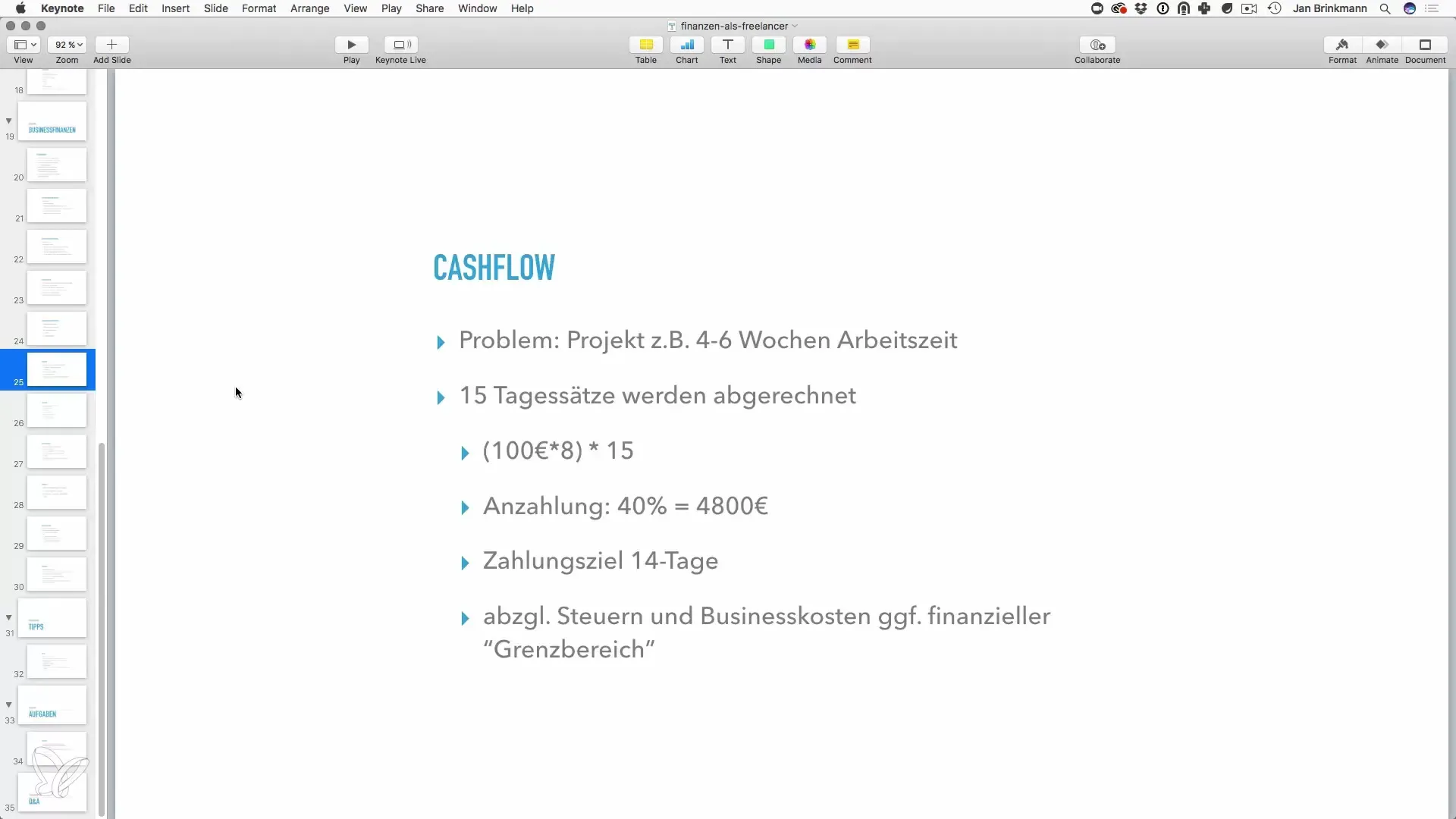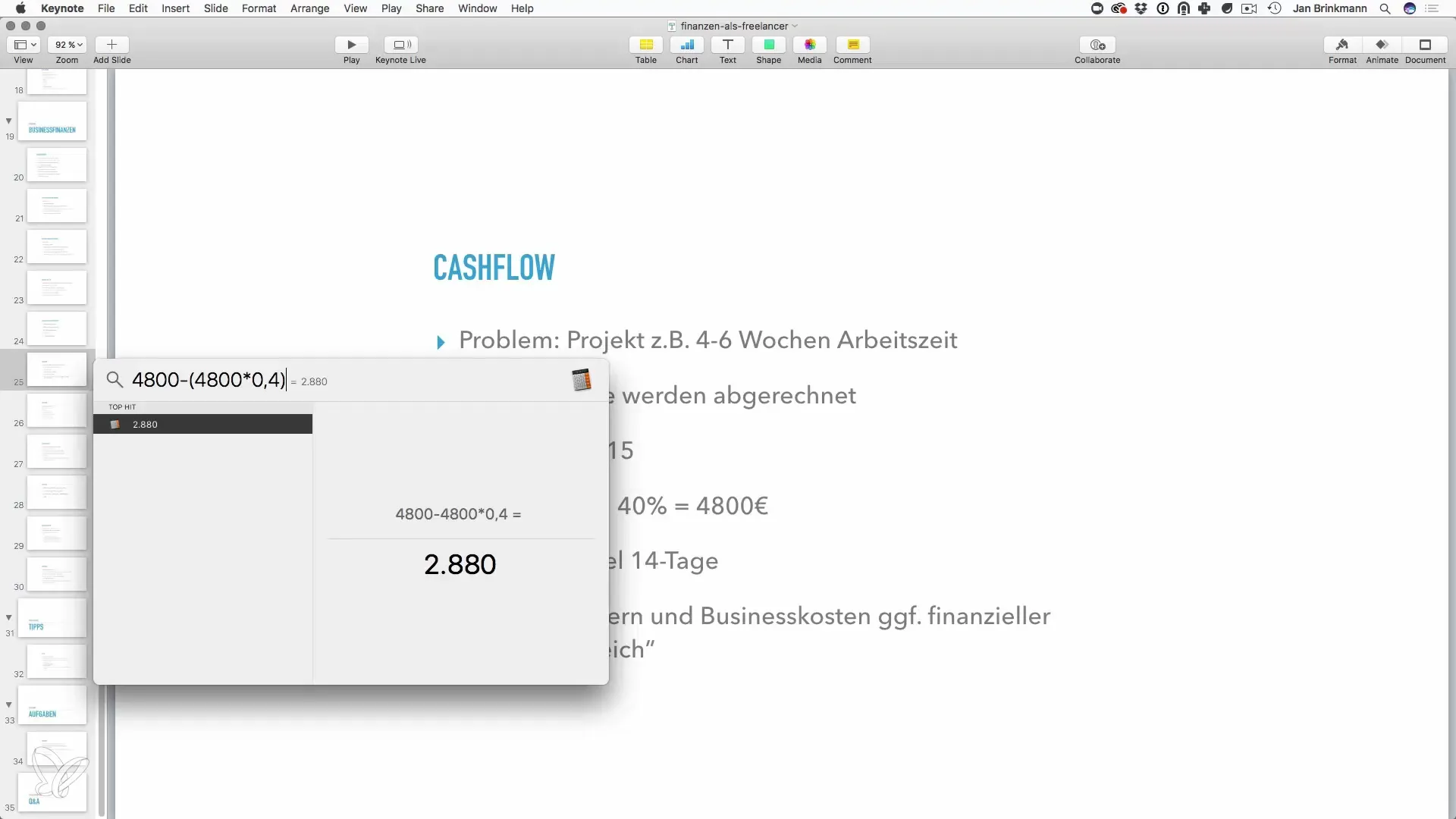Cashflow is not only a term from the financial world but also a crucial factor for your success as a Freelancer. You may receive a lucrative order once, but if the payment comes long after project completion, it can quickly become critical for you. The landlord does not wait six months for their rent, and your ongoing costs cannot be postponed either. In this guide, you will learn how to optimize your cash flow so that you remain liquid even with longer projects.
Key Insights
- Having a stable cash flow is crucial for the financial health of your business.
- Deposits and interim billing help to avoid liquidity bottlenecks.
- Plan your expenses and revenues carefully to be able to pay wages and bills on time.
Step-by-Step Guide to Optimizing Your Cash Flow
1. Keep Monthly Expenses in Check
To secure your liquidity, it is important to know your monthly expenses in detail. This includes rent, electricity, internet, and all the other fixed costs that are due every month. You should incorporate this monthly billing cycle into your financial planning.

2. Calculate Profits and Orders
If you take on a larger project that spans several weeks, you may find that you get paid long after the execution. If you agree on a daily rate of, for instance, 800 €, you need to ensure that you have enough liquidity to cover your ongoing costs during the project period.
3. Request a Deposit
A proven model is to demand a deposit of 40% at the start of the project. This gives you immediate liquidity to cover your ongoing costs. So if you start with a project of 12,000 €, you should request at least 4,800 € as a deposit.
4. Introduce Interim Billing
To avoid waiting a long time for the final payment during a large project, you could introduce regular interim billing. For example, after completing a certain project phase, you could request another 40% of the fee. This way, you can secure a steady income source throughout the duration of the project.
5. Plan Withdrawals
Be aware of when and how much money you can withdraw for yourself. If you want to withdraw 1,500 € from your business each month, you need to ensure that your business generates enough revenue for this to be possible. It is often recommended to generate at least 5.5 times as much turnover to be able to make this withdrawal.
6. Build a Buffer
To avoid liquidity bottlenecks, it is advisable to build a buffer. This buffer should consider both personal and business reserves. Fill your business buffer before starting new projects or making larger investments. This gives you a safety net in case unexpected expenses arise.
7. Regular Financial Review
Before diving into new projects, you should regularly review your finances. Ensure that your working account is well-filled to cover your expenses. A conservative approach can help you build a solid financial foundation before taking on larger commitments.
8. Conduct Flexible Payments
Utilize flexible payment options to better manage your expenses. It can be wise to split your transfers into several smaller amounts so that your liquidity is not burdened all at once. If necessary, you can also stagger your invoices.

9. Consider Tax Obligations
Don't forget: You need to consider taxes and other obligations in your price calculations. For example, with a project of 12,000 €, only 10,000 € might be available after taxes. Therefore, calculate these deductions in advance to avoid unpleasant surprises.
10. Communication with Clients
Maintain open communication about payment terms and conditions with your clients. This way, everyone knows when to expect payments, and you can adjust your liquidity accordingly. Sometimes it can even be helpful to set incentives for clients to pay faster.
Summary – Cash Flow for Freelancers: How to Secure Your Liquidity
Proper planning and consideration of the steps mentioned above will help you ensure your cash flow and remain liquid even during extensive projects. Pay attention to deposit patterns, plan interim billing, and always keep an eye on your expenses in order to operate successfully in the market.
Frequently Asked Questions
How important is cash flow for freelancers?Cash flow is crucial for your business's solvency and financial well-being.
What should I consider with larger projects?Plan deposits and interim billing to ensure your liquidity is not jeopardized.
How high should the buffer in my working account be?A sufficient buffer should cover ongoing costs for two to three months.
Can I take care of my family and work at the same time?Yes, good time and financial planning can help balance both.


